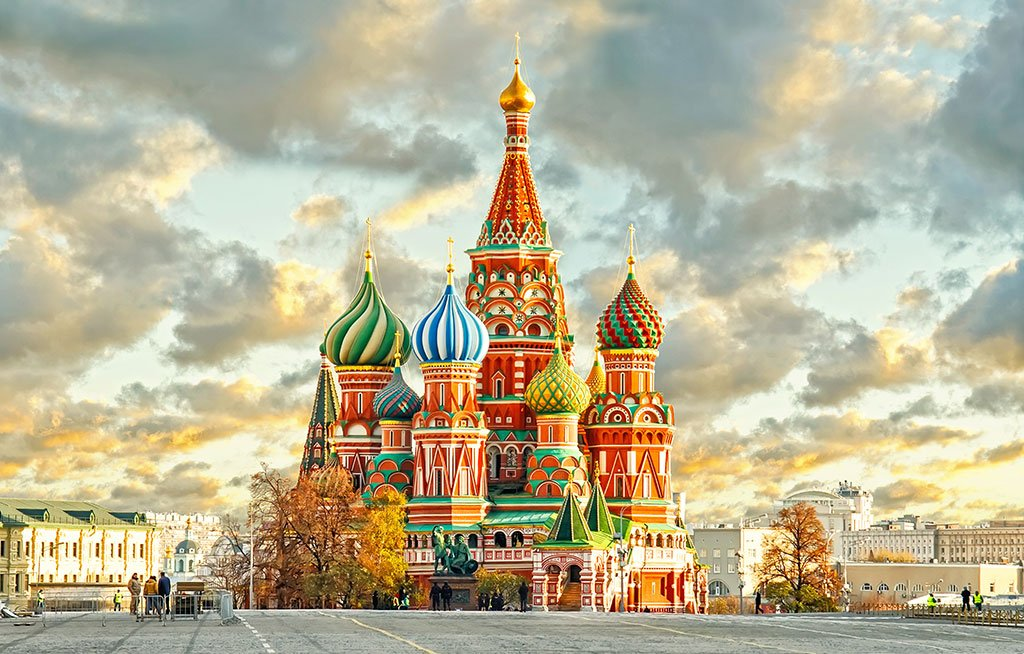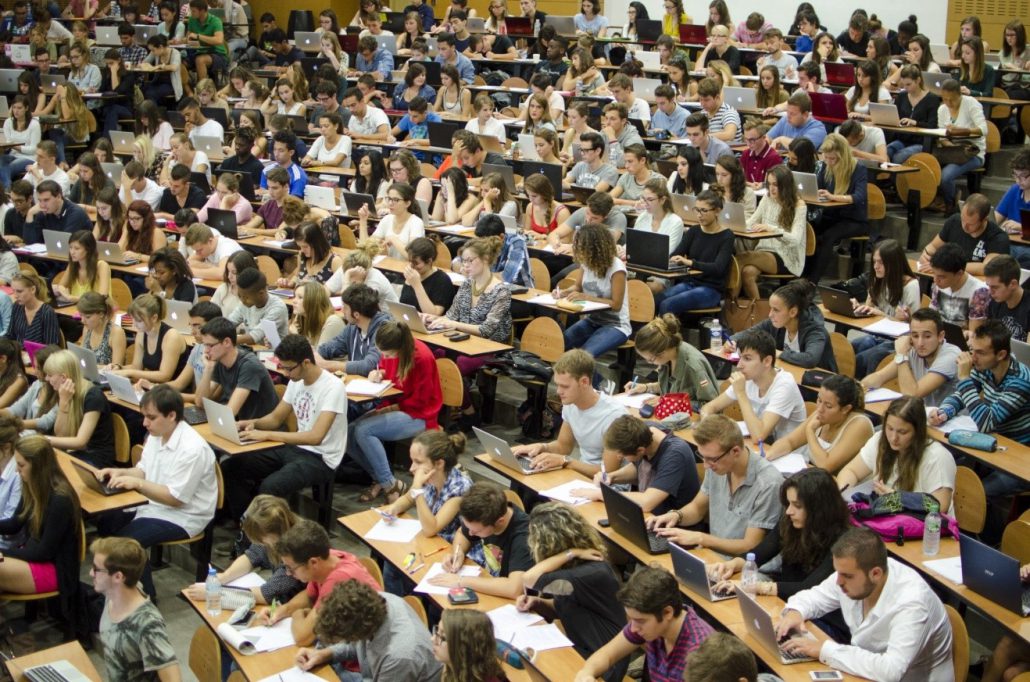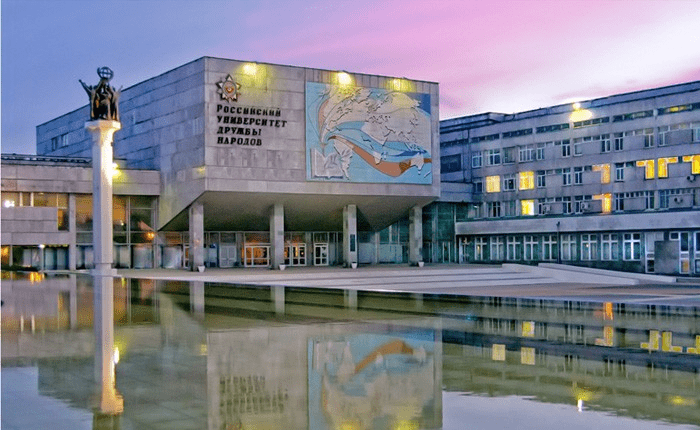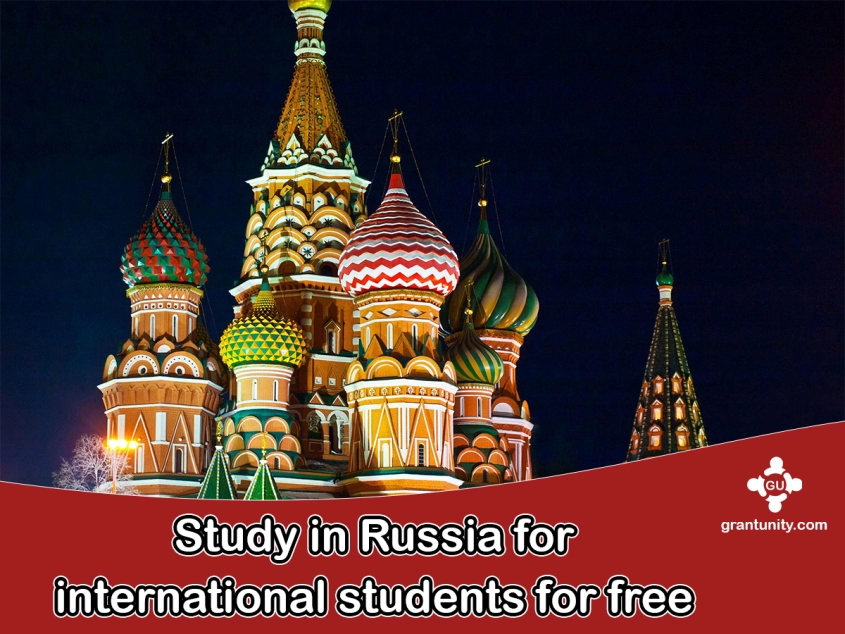Study in Russia for international students for free in 2024
A growing number of students worldwide recognize Russia as an ideal destination for pursuing their higher education. Renowned for its rich cultural diversity, Russia provides an immersive and dynamic environment that ensures international students receive a high-quality education. This diversity extends beyond academic pursuits to encompass a vibrant blend of traditions, languages, and perspectives, creating an enriching and inclusive atmosphere.
If you are a prospective student contemplating studying in Russia, this comprehensive guide is tailored to address your needs and queries. From navigating the admission process to understanding the cultural nuances, this guide aims to provide valuable insights that will empower you to make informed decisions about your educational journey in Russia.
Explore the academic offerings across various universities, gain insights into student life, and discover the cultural gems that make Russia an enticing study abroad destination. Whether you are seeking undergraduate or postgraduate programs, this guide will assist you in understanding the unique facets of Russian education, its esteemed institutions, and the diverse opportunities that await ambitious learners.
Embarking on an educational journey in Russia not only promises academic excellence but also offers a chance to immerse yourself in a nation that values its rich historical heritage while embracing global perspectives. This guide is your gateway to unlocking the potential and opportunities that studying in Russia can offer. Let your academic aspirations flourish in the culturally diverse and intellectually stimulating environment Russia proudly offers students worldwide.

Study Requirements in Russia
Studying in Russia is an exciting opportunity, and understanding the study requirements is crucial for a successful application. The specific requirements may vary based on the level of study (undergraduate, postgraduate, or doctoral) and the chosen program. Here’s a general overview:
1. Language Proficiency:
- Undergraduate Programs:
- Most undergraduate programs in Russia are conducted in Russian. Therefore, prospective students are generally required to demonstrate proficiency in the Russian language through standardized tests or university-specific language assessments.
- For programs offered in English, applicants may need to provide evidence of proficiency in English through tests such as IELTS or TOEFL.
- Postgraduate Programs:
- Language requirements for postgraduate programs depend on the language of instruction. Proficiency in either Russian or English is typically required.
- English-language programs often necessitate proof of proficiency through recognized tests like IELTS or TOEFL.
2. Academic Qualifications:
- Undergraduate Programs:
- Applicants for undergraduate programs should have completed their secondary education or possess an equivalent diploma.
- Some programs might have specific subject-related prerequisites, and meeting these criteria is essential for successful admission.
- Postgraduate Programs:
- Prospective postgraduate students must hold a relevant bachelor’s degree from a recognized institution.
- Master’s programs may require a bachelor’s degree, while doctoral programs may require a master’s degree in a related field.
3. Entrance Exams:
- Depending on the chosen field of study, certain programs may require applicants to take specific entrance exams. These exams are common in science, engineering, and other specialized disciplines.
4. Application Forms:
- Applicants are required to complete the university’s official application form, which can usually be submitted online or by mail. It’s crucial to follow the guidelines provided by each institution.
5. Transcripts and Certificates:
- Applicants need to provide official transcripts and certificates verifying their academic qualifications. If these documents are not in Russian or English, translation is often required.
6. Letter of Intent:
- A letter of intent or motivation is a personal statement where applicants articulate their reasons for wanting to study in Russia, their academic interests, and their future aspirations.
7. Letters of Recommendation:
- Some universities require applicants to submit letters of recommendation from teachers, professors, or employers. These letters offer insights into the applicant’s character, academic capabilities, and work ethic.
8. Passport and Visa:
- Applicants should possess a valid passport and must apply for a student visa to study in Russia. The university often provides guidance on the visa application process.
9. Medical Insurance:
- Health insurance coverage is mandatory for students studying in Russia. Applicants should obtain the required medical insurance as specified by the university.
10. Financial Proof:
- Applicants must demonstrate their financial ability to cover tuition fees and living expenses. This may involve providing bank statements, sponsorship letters, or other financial documentation.
11. Entrance Interview:
- Some programs may require applicants to undergo an entrance interview. This interview assesses the applicant’s suitability for the program and provides an opportunity to discuss their academic and career goals.
12. Portfolio (for Art and Design Programs):
- Applicants to programs in arts or design may be required to submit a portfolio showcasing their creative work. The portfolio is a collection of the applicant’s artistic achievements and demonstrates their skills and style.
13. Additional Requirements:
- Each university or program may have unique requirements. Applicants should thoroughly review the specific criteria outlined by the institution of interest.
Always refer to the official websites of the Russian Ministry of Education and Science and individual universities for the most accurate and up-to-date information regarding study requirements.
Russian Universities Ranking
Russian universities offer a wide range of study options for international students. Every Russian University upholds the highest standards of education. The following table shows the rankings for Russian universities:
| University | QS world university ranking |
| Lomonosov Moscow State University | 74 |
| Saint Petersburg State University | 225 |
| Novosibirsk State University | =228 |
| Tomsk State University | 250 |
| Moscow Institute of Physics and Technology (MIPT / Moscow Phystech) | 281 |
| Bauman Moscow State Technical University | =282 |
| HSE University (National Research University Higher School of Economics) | =298 |
| National Research Nuclear University MEPhI (Moscow Engineering Physics Institute) | =314 |
| RUDN University | =326 |
| Ural Federal University – UrFU | =331 |
Best courses to study abroad in Russia
Russia offers a diverse range of academic programs across various fields. The best courses to study abroad in Russia would depend on your interests, career goals, and the specific strengths of Russian universities. Here are some popular and noteworthy courses and fields of study:
1. Engineering and Technology:
- Russia has a strong reputation in engineering and technology.
- Courses in Aerospace Engineering, Mechanical Engineering, Computer Science, and Robotics are particularly well-regarded.
2. Natural Sciences:
- Russia has a rich history in scientific research.
- Programs in Physics, Chemistry, Biology, and Mathematics are offered by prestigious institutions.
3. Medical Sciences:
- Russian medical universities are recognized globally.
- Medicine, Dentistry, Pharmacy, and Nursing programs are popular among international students.
4. International Relations and Political Science:
- Russian universities are known for their expertise in international relations.
- Political Science, International Relations, and Diplomacy programs attract students interested in global affairs.
5. Economics and Business:
- Moscow and St. Petersburg are major economic centers.
- Economics, Business Administration, and Finance programs are available at top universities.
6. Language and Literature:
- Russian language and literature programs offer a deep dive into the culture.
- Russian Studies, Literature, and Linguistics are great choices for language enthusiasts.
7. Agriculture and Environmental Sciences:
- Russia’s vast landscapes and agricultural potential make these programs relevant.
- Agricultural Science, Environmental Studies, and Forestry are offered by leading institutions.
8. Energy and Renewable Resources:
- With a focus on energy independence, Russia offers programs in Energy Engineering and Renewable Energy.
9. Space and Aviation Studies:
- Russia has a strong presence in space exploration.
- Programs in Aerospace Engineering and Aviation are available.
10. Art and Design:
- Russian arts and culture have a rich heritage.
- Fine Arts, Graphic Design, and Performing Arts programs are well-represented.
11. IT and Cybersecurity:
- Given the global emphasis on technology, programs in Information Technology and Cybersecurity are in demand.
12. Architecture:
- Russian architecture has a unique blend of traditional and modern styles.
- Architecture and Urban Planning programs are offered by prestigious institutions.
13. Social Sciences:
- Sociology, Psychology, and Anthropology programs provide insights into Russian society.
14. History and Archaeology:
- Russia’s history is vast and fascinating.
- History and Archaeology programs offer a deep exploration of the country’s past.
15. Language Learning Programs:
- Russian universities offer intensive language programs for international students to learn the Russian language.
Before making a decision, consider your personal interests, long-term career goals, and the specific strengths of the universities you are interested in. Research each program’s curriculum, faculty, and any unique features it may offer. Additionally, check admission requirements and language of instruction for each program.

How much does it cost to study in Russia
The cost of studying in Russia can vary depending on the University, program, city, and lifestyle you choose. International students’ tuition costs in Russia can vary from one institution to another. Russia is frequently the least expensive nation in Europe, particularly regarding the high caliber of education. Here are the specifics of the tuition costs for international students to study in Russia:
| Study program | Tuition fee |
| Bachelor’s degree | RUB 220,000 to 240,000 per year |
| Specialist’s degree | RUB 220,00 to 240,000 per year |
| Master’s degree | RUB 240,000 to 260,000 up to RUB 450,000 per year |
| Postgraduates course | RUB 72,000 to 250,000 per year |
Study in Russia scholarship
The Russian government, universities, and other outside organizations offer scholarships to international students. Although it is impossible to attend school for nothing in Russia, scholarships can help you pay for some of your study-related costs. The list of scholarships for studying in Russia is as follows:
1-Government of Russian Federation Scholarships
2-Non-governmental Russian scholarships
- Benjamin A. Gilman Scholarships
- The School of Russian and Asian Studies (SRAS)
- BP in Russia Research Scholarships
- American Councils Scholarships
- Open Doors: Russian Scholarship Project
3-Russian universities scholarships for international students
- Moscow Institute of Physics and Technology (MIPT)
- HSE University
- National University of Science and Technology MISiS
- Saint Petersburg Polytechnic University
- Tomsk State University
- Russian International Olympic University
Study in Russia in English
Universities in Russia are increasingly offering numerous study programs taught in English. The following is a list of prerequisites for enrolling in a program that teaches Russian in English:
- Your ability to communicate in English is demonstrated by the score required by the particular University. If you are a native speaker, you do not need to provide any evidence.
- Some universities might also require you to submit a CV and portfolio and complete an interview in English.
Russian universities offering English-language programs
The following table lists the University’s bachelor programs that are taught in English:
The following table lists the bachelor’s programs that are taught in English at the specific University:
| University | It offers a bachelor’s degree in International Business in English. |
| Moscow Institute of Physics and Technology (MIPT) | It offers aerospace engineering, biomedical engineering, and computer science in English. |
| National Research Nuclear University MEPhI (Moscow Engineering Physics Institute) | Offers bilingual English/Russian programs in various subjects |
| National Research University Higher School of Economics (HSE) | English-taught undergraduate degrees are offered in mathematics, politics, business, management, Russian studies, and economics |
| Peoples’ Friendship University of Russia (RUDN University) | It offers English-taught programs in humanities subjects, regional studies, linguistics, and state and municipal management. |
| Peter the Great St. Petersburg Polytechnic University | English-taught undergraduate degrees are offered in mathematics, politics, business, management, Russian studies, and economics. |
The following table lists the graduate English-taught programs that are available from the specific University:
| University | English taught masters program |
| Lomonosov Moscow State University | English-taught postgraduate degrees are available in mathematics, computer science, aerodynamics, etc. |
| Moscow Institute of Physics and Technology (MIPT) | English-taught master’s programs are the Quantum Technologies program and Physics of Condensed Matter, open in Materials Technology, Physics, and Astronomy. |
| National Research University Higher School of Economics (HSE) | 31 English-taught master’s degrees |
| National University of Science and Technology MISiS | It offers 5 postgraduate degrees, including materials science, classics, and financial management, which are available in English. |
| Novosibirsk State University | It offers 5 postgraduate degrees, including materials science, classics, and financial management are available in English. |
| Peoples’ Friendship University of Russia (RUDN University) | It offers several English master’s programs, such as chemistry, organic farming, economics, and international law. |
| Peter the Great St. Petersburg Polytechnic University | It offers postgraduate degrees in engineering, natural sciences, and management subjects in the English language. |
| St Petersburg State University | 14 master’s degrees taught entirely in English |
| Tomsk Polytechnic University | English-taught master’s degrees in big data solutions, nuclear medicine, and physics. |
| Ural Federal University | It offers 13 master’s degrees fully taught in English and one degree, which is a partial English master’s degree. |
Student Visa for Russia
A Russian student visa is initially only granted for three months. After this time, you should apply for a visa extension. The Federal Migration Service grants a one-year extension of the visa’s validity period. You should apply for a further one-year extension when your visa is about to expire and keep doing so for the duration of your academic program.

Documents required for the study visa for Russia are:
- International passport (original) and a copy of the front page.
- The official invitation for entry to Russia (original).
- Application form.
- Latest Photographs of the size 3.5 x 4.5 cm
- Certificate of HIV-negative status.
- Parental consent to travel certified by a notary is compulsory for applicants under 18.
Study and work in Russia
Working is permitted while an international student is studying in Russia. The General Administration for Migration Issues of the Russian Interior Ministry must issue students a work permit. But they can only work in the city where the institution is located and in the professions listed in the permit. To obtain a work permit, the following documents must be submitted:
- Application
- Migration card
- Passport
- Receipt of fee payment
- Employment contract
- Certificates of HIV-negative status, no infectious diseases or drug addiction.
- A statement from a university proving that the student is admitted on a full-time course.
Frequently Asked Questions: Study in Russia
You’ve made a crucial choice that will affect your personal and professional future! From March 1 to October 1, applications are accepted for study on a foundation course. Applications for study on main courses (first and subsequent years) are accepted from March 1 through August 15 for passport holders of countries that do not require a visa and from March 1 through July 15 for those who do. Please fill out the online application form to receive more information about the services offered, including contact details for the local representative.
IMPORTANT: Applications are processed by the number of slots allocated by Russian state universities for international students. Therefore, once you’ve decided on a university, we advise against delaying the submission of your application. Places are scarce!
Russian is the language of instruction at Russian universities. There are about 20 additional specialties where training is provided in English and French (general medicine, pharmacy). Candidates who select the English or French training must have a language proficiency interview when they arrive. Having the results of any international language exams, such as the IELTS, TOEFL, CAE, DALF, or TCF is unnecessary. Russian language instruction is an essential and significant component of the curriculum, regardless of the medium of instruction. Russian language proficiency is crucial for international students in Russia for daily life, communication inside and outside of the University, and full use of the millions of pieces of educational literature available throughout the entire study period.
To get a specification of the possibility of studying the chosen specialty in English or French, do not hesitate to inquire to info@eduinrus.ru
Russian is the language of instruction at Russian universities. There are about 20 additional specialties where training is provided in English and French (general medicine, pharmacy). Candidates who select the English or French training must have a language proficiency interview when they arrive. Having the results of any international language exams, such as the IELTS, TOEFL, CAE, DALF, or TCF is unnecessary. Russian language instruction is an essential and significant component of the curriculum, regardless of the medium of instruction. Russian language proficiency is crucial for international students in Russia for daily life, communication inside and outside of the University, and full use of the millions of pieces of educational literature available throughout the entire study period. Meets and transfers students arriving at Moscow or Saint-Petersburg international airports to study at Russian state universities; provides lodging (a place in a room) in a dorm for students; aids in obtaining free textbooks for use in studies from university libraries; keeps an eye on students’ behavior and academic progress; upon request, updates parents on a student’s development and conduct; provides guidance and support to students while they are enrolled in Russian state universities (up to 7 years).
Except for the student’s travel costs to Russia and admission to study at Russian state universities, all services offered by REC to foreign nationals in Russia are FREE. Based on contractual agreements with REC, the group of Russian state universities sponsors all of the services and activities of REC mentioned above (including representing Russian state universities abroad and enrolling foreign nationals for studies).
Belgorod, the cultural center of Russia and unquestionably one of the most stunning cities on earth, is home to the “REC” central office. The organization currently has branch offices in 10 cities in the European part of Russia, 5 departments, and representative offices in 58 countries across Asia, Africa, the Middle East, South America, and the Commonwealth of Independent States (some of which were once part of the USSR). Contact us at info@eduinrus.ru or submit the online application to learn more about the representative in your nation.
All universities that comprise the “REC” group have state status, a state license, and/or accreditation from the Russian Federation’s Ministries of Education and Science and/or Health and Social Development. They have cutting-edge resources and equipment for theoretical and practical training and highly qualified instructors (on average, 80% of professors hold Ph.D. degrees). The average age of universities ranges from 80 to 200 years or more, and there are typically between 10,000 and 15,000 students enrolled from more than 200 nations. Therefore, all of the universities in the “REC” group are renowned institutions of higher learning with a solid reputation for excellence, prestige, accessibility, and international recognition.
The specific specialty and program determine the exact length of the studies. Please carefully consider the Russian higher education system on the page titled “Education in Russia,” where the length of the training period for each potential specialty is listed. Graduates of Russian universities who complete their studies are awarded higher education degrees of the national standard that confirm their completion of higher education and specify their degree or qualification (e.g., “Bachelor of Science,” “Master of Science,” “Specialist/Engineer-Specialist,” etc.).
On request, graduates also receive a “European Appendix,” a document that allows them to obtain a degree’s equivalent in any of the 47 European and non-European nations that have ratified the Lisbon Recognition Convention and the Bologna Declaration on the creation of a European Higher Education Area. This document enables graduates to pursue further education or find employment in these nations. According to ratified intergovernmental and international agreements, the recognition of Russian degrees worldwide is ensured. All degrees from Russian state universities are currently accepted worldwide.
Yes. The verification of educational programs and successful completion of the equivalence procedure (establishing recognition of the training period at a foreign university in the “Rosobrnadzor” of Russia) are prerequisites for the admission of foreign students who wish to transfer from foreign universities.
Depending on the University, the course of study, and the medium of instruction, the average tuition fee ranges from US$2,500 to US$4,000. Send an email to info@eduinrus.ru with the specialty of interest in the subject line to receive the precise cost of the selected specialty. We will choose several universities in various Russian cities, depending on the seats available for international students. If you select the University of your interest from the “Universities” page, tuition costs can also be found there.
1-The Russian government funds foreign students’ education at Russian state universities. As a result, tuition typically ranges from $2500 to $4000 USD for one academic year, depending on the specialty, University, city, and medium of instruction. As a result, the Government of the Russian Federation has already significantly reduced the cost of education in Russian universities for international students. The student bears only a small portion of the cost in addition to state aid.
2-Unfortunately, the Russian government does not offer scholarships or sponsorships to international students. However, you can submit a request for a scholarship to the relevant organizations in your nation. Please be aware that the applicant must have a higher secondary school diploma with a minimum overall passing grade of 80% to be considered for a government scholarship. It is significant to note that very few scholarships are available for popular specialties (like medicine). All higher secondary school graduates with passing grades of less than 80% may be admitted only on a fee-based basis (to any specialty without restrictions).
3-Experience has shown that sponsorship can also come from non-governmental (private foundations, businesses interested in hiring qualified personnel, relatives, etc.) and foreign governments (the Ministry of Education in your nation, state funds, etc.). After carefully reviewing the entire set of documents, “REC” will prepare all necessary certificates and letters of admission to the Russian University of your choice for the sponsoring organizations of your nation. Think carefully about all your options to fulfill your dream of receiving a top-notch education in Russia!
According to the invoice that “REC” sends the student, payment for the first year of training is made by bank transfer. 20 days before the student arrives in Russia, the payment must be made. When requesting a “student visa,” students must present a receipt at the Russian Federation’s Embassy or Consulate General proving payment for the academic year. If payment is not made in full, “Invitation letters” or “Student visas” may not be issued.
After reviewing the student’s educational records, “REC” sends an “admission letter” and an “invoice” for the first year’s fees, which include the full tuition, housing in a dorm, and life and health insurance, which must be paid as soon as possible. We advise you not to make the payment because doing so would signal that you are not interested in the available seat, and another applicant would be allowed to apply. The availability of quotes is strictly on a first-come, first-served basis due to a cap on the total number. Submitting all required paperwork and paying on time will ensure your admission to the University of your choice.
1. Tuition fees can be paid via bank transfer before the start of the academic year or before September 1 every year for students in the subsequent years of education. To do that, you must email an “invoice” inquiry to info@eduinrus.ru. With the assistance of the “REC” manager, the student may also open a bank account in Russia. Parents (or sponsors) will transfer the tuition fees to this account. The student must take the money out of his bank account, convert it to Russian Rubles (which is simple in many foreign exchange offices if you show your ID), and then pay the “REC” or the University the amount stipulated in the signed contract.
2. The tuition and housing fee may be paid in two installments: 70% of the tuition and housing fee for the academic year must be paid by September 1, and the remaining 30% must be paid by February 1 for the second term. The life and health insurance fee is fully paid before the start of each academic year, on or before September 1. Failure to meet the deadlines for tuition payment constitutes a violation of the registration and immigration laws governing the stay of international students on Russian soil. In this situation, the student might be dismissed from the University and have 14 days to leave Russian territory.
The contracts between the University and “REC,” “REC” and the student, and “university and student,” as well as the regulations, standard acts, and policies governing the admission of foreign students to Russian state universities, govern all matters about financial reimbursement if a student declines to pursue a course of study. Please become familiar with the following basic guidelines:
1-The full amount paid for tuition, housing, and insurance is refundable if a student withdraws for any reason before traveling to Russia and beginning the course. Registration fees, banking service costs, and exchange rate fees are not refundable.
2-If a student withdraws from the University after arriving in Russia, admission to the school and housing in the student’s residence: a) The amount paid for the Foundation course is NOT refundable; b) The amount paid for the main course (1-6 years) is refundable in the amount of 30% of tuition and housing for the academic year. Insurance fees, registration fees, banking services, and exchange rate fees are not refundable.
3-Money refunds can only be processed after students submit an established form made available by the “REC” central office. Only bank transfers to the student’s specified account will be accepted for refunds. A cash refund on Russian soil in any of the situations above is not allowed by the game’s rules.



Leave a Reply
Want to join the discussion?Feel free to contribute!